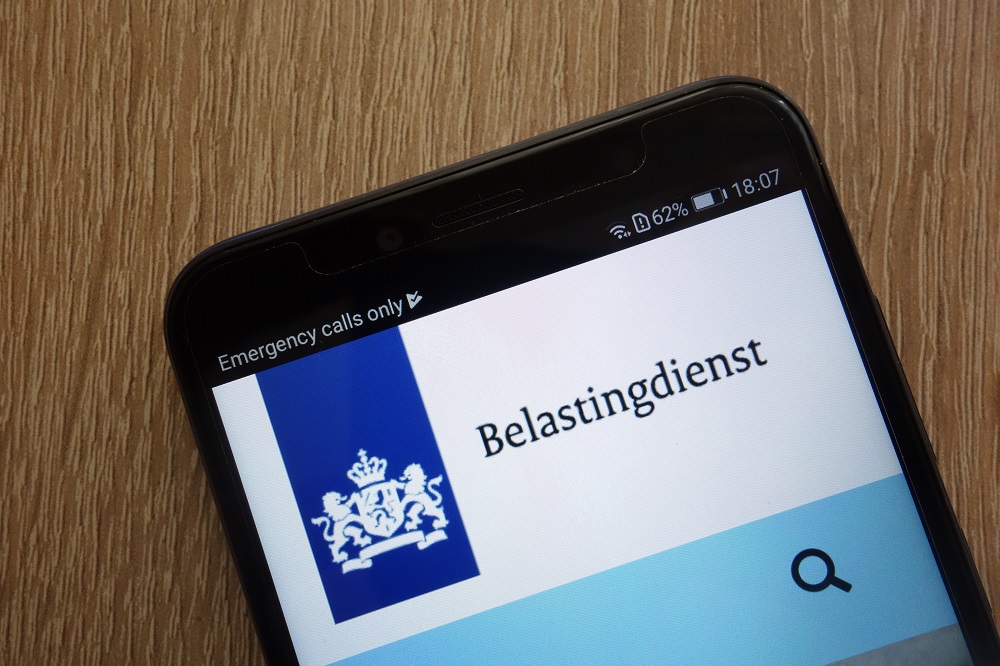Are you an intrepid expat entrepreneur, planning to start your own company in NL? You should be well-accommodated in this country. Inevitably, there will be a little bit of red tape to work through, in order to get your business off the ground. As your own boss, you must ensure that you are paying and reporting your taxes correctly, and that you have acquired all the necessary diplomas and permits for your specific line of work. This page will cover the key ‘to dos’ for getting your company legally established and running in Holland. It will also provide information on the various advisory bodies, and forms of financial aid, that the Netherlands has to offer for startups.
Establishing your Company in NL
Thanks to the Dutch government’s policy on free enterprise no specific restrictions apply to foreign companies who wish to:
- Start a business in Holland
- Own Dutch real estate
- Secure remission of their capital and profits abroad
This means that it is possible for expats to permanently establish their own businesses in the Netherlands.
Dutch Business Models
In order for the policy to apply to your company, it must fit into one of the business models created by the Dutch legal system. The options are:
- A branch office
- A one-man business, or an ‘Eenmanszaak‘
- A partnership, or a ‘Maatschap‘. This refers to a business involving more than one person. This model is usually used by accountants, doctors, etc
- A general or commercial partnership, or a ‘Vennootschap onder firma‘ (VOF). This is a company involving more than one person, under a common name. Each partner will be severally liable
- A ‘Commanditaire vennootschap‘ (CV). This is a limited partnership that is under management, and has ‘silent’ partners
- A ‘Besloten vennootschap‘ (BV). This is a private company that has limited liability
- A ‘Naamloze vennootschap‘ (NV). This is a corporation or a public corporation
 Side Note
Side Note
- Every natural person who wants to work in the Netherlands must comply with the Dutch entry requirements
- This is the rule, regardless of whether you are in employment, or self-employment
- This means that you must have a Dutch Citizen Service Number and a Digid
The Netherlands Chamber of Commerce
To set up virtually any kind of company in the Netherlands, one of the first steps you must take is to register with the ‘KVK’. ‘KVK’ is short for ‘Kamer van Koophandel‘, and this is Dutch for ‘Chamber of Commerce’.
Registering with the KVK in NL
Registering companies that are based in the Netherlands is one of the KVK’s main tasks. This goes for both Dutch companies and foreign companies. Whether or not you plan to carry out business in the area in which your company is based makes no difference: if you are setting up one of the following organizations in NL, you are are obligated to register with your local Chamber:
- Public and private limited companies
- Cooperative societies
- Mutual guarantee associations
- Sole traders
- Partnerships
- Associations of home-owners
- Private persons who work on a freelance basis
- Persons who carry out one of the professions specified on the professions list of the Chamber of Commerce
You are also obligated to inform the KVK if you have been authorized to take some form of higher responsibility within an enterprise. For example, you may have been made:
- A private entrepreneur
- A director
- A partner
Proof of Identity in NL
To register with the Chambers of Commerce, you will need to provide valid proof of identity. Any of the following documents will be accepted:
- A valid travel document, such as a Dutch passport, a foreign passport, or a European identity card
- A valid Dutch driver’s license. A foreign driver’s license will not be accepted
- A residence permit, issued by the Dutch aliens police
- A Dutch refugee passport
- A Dutch aliens passport
You must also be able to provide an original bank statement with your name on it. Alternatively, you could show an original extract from the population register. This must be no more than one month old.
Why Register with the KVK?
The purpose of this registration is to:
- Enable third parties to gather information about the legal structure of companies operating in the Netherlands
- Said parties might need to discover who, within a company, should be held liable for something
- Equally, they might need to know who to contact within a company, when they wish to form a binding commitment
- This system has proven to be reliable and transparent
Diplomas and Permits in NL
Naturally, whether or not you need a permit or a diploma in order to begin your business, depends on the type of business you wish to start. Luckily, most startups in the Netherlands will not require a diploma. Yet, you might require one of the following forms of documentation, to get your company up and running:
- Building permits
- Environmental permits
- Establishment permits
- Some businesses might also be subject to a zoning plan
In order to find out what you need, contact either your municipality or your local KVK office.
If you have obtained a diploma in another country, it will have to be evaluated by the ‘IDW’, to see whether it qualifies. The IDW is the center for ‘International Credential Evaluation’ in the Netherlands.
Taxes for Self-employed Persons in NL
If you run your own company, you can be held liable for the following taxes in the Netherlands:
- Wage tax
- Income tax
- National insurance schemes
- Employee insurance schemes (if you have employees)
- VAT (value added tax)
Even if you are completely self-employed, and have no one to answer to, you will still owe income tax in the Netherlands. This means you must:
- Pay VAT
- Arrange your own medical insurance
- Pay a fixed contribution, and an income-dependent contribution, for your medical insurance. This is the case for anyone working for an employer in the Netherlands as well
Financial Relief for Business Owners in NL
What if you want to run your own business, but you cannot afford these expenses?
- If your income lies below a certain level, you can apply for government assistance
- You might be eligible to receive ‘zorgtoeslag‘. This is a form of government contribution, which goes towards your insurance bills
- If you qualify for governmental aid, and you have a partner, the two of you will receive zorgtoeslag collectively
- Enlisting the services of an accountant will help you make the most of any governmental schemes that are available to you
VAT in NL
If your company delivers services and goods in the Netherlands, you are obligated to charge your customers VAT. Here is what you need to know:
- In Dutch, VAT is called ‘Belasting Toegevoegde Waarde‘, or ‘BTW’
- VAT must be paid to the Dutch tax authorities
- The general VAT rates in the Netherlands are 21% and 9%
- Goods and services providers owe VAT the moment they send out an invoice
- You will owe VAT, regardless of whether or not you make a profit, or aim to make a profit
- If you deliver goods and services outside of the Netherlands, other rules might apply to you
There are a few exceptions to the VAT rules:
- if you, as a goods or services provider, also pay others for their goods and services the rules are a little different
- In this case, the amount of VAT that you pay others for their goods and services can be deducted from the amount of VAT you owe yourself
- Those whose ‘VAT income’ does not exceed a certain amount can enjoy varying degrees of exemption from VAT too
Reporting your VAT in NL
In the Netherlands, you must make an official record of the VAT you are due to pay. Here are the steps you must follow:
- Report the amount of VAT you owe on an ‘Aangifte omzetbelasting’
- This is a ‘Turnover Tax Return’ form
- You must fill in these forms on a regular basis. They can be submitted monthly, quarterly or yearly
- You can choose to do this online, by means of the ‘elektronische‘
- This translates literally as the ‘electronic’, but the Dutch use it to refer to a ‘Tax Return’
- When you register your business, the tax authorities will issue you a username and a password, to file your tax return online
Financial Aid and Deductions in NL
There are several ways in which you can save yourself money as an entrepreneur in NL:
The Tante Agaath-Regulation
- There is a scheme that exists in the Netherlands called the ‘Tante Agaath-regulation‘
- This scheme makes it fiscally attractive for private persons to lend money to those who are setting up businesses in Holland
- For more information on this, contact the Dutch Tax Office
- Dutch Banks may be able to offer you financial assistance as well
Tax Deductions for Entrepreneurs in NL
- Every tax payer in the Netherlands has a right to a levy rebate of €7,280
- Irrespective of your profits, you have this right too, as an entrepreneur
- That is, so long as this amount does not exceed your earnings
- You can also enjoy an additional deduction, on top of this
- In order to qualify for this second deduction, you must be able to prove that you spent at least 1,225 hours of the past tax year working for your own business
- If your spouse works for your company as well, there are additional rules and possibly further deductions you could benefit from
‘Starting Entrepreneurs’ in NL
If you are in the process of starting up your new business in the Netherlands, there are further deductions you can benefit from:
- You are described as a ‘startende ondernemer‘ in Dutch
- This translates as simply a ‘starting entrepreneur’
- You will be able to claim a tax further deduction, subject to certain conditions
- Over the first few years, this can amount to €2,123
- If you start your own company and you are disabled, you will be able to claim a substantial tax deduction on your first three years of business
- Again, this is subject to certain conditions that you can find on the website of the tax authorities
- Tax credits are also available for investments made in cultural investment funds, green funds and socio-ethical funds
Advice for Startups in NL
There are several institutions that can offer you support and advice about starting your own company in the Netherlands:
1. MKB-Nederland
‘MKB-Nederland‘ is an organization that represents the interests of small and medium-sized companies, operating in the Netherlands:
- MKB stands for ‘Instituut voor Midden- en Kleinbedrijf‘
- This institution hosts activities for helping entrepreneurs to get their businesses going
- The aim of these activities is to supply members of the MKB with relevant knowledge and expertise
- The MKB also endeavors to improve the general position of small and medium-sized companies in Holland
2. The KVK could Help your Company
The Chambers of Commerce is a public institution. Therefore, as an expat starting up a company in Holland, you can look to the KVK for advice and information on:
- How to start your own business in the Netherlands
- Which diplomas you will need for your specific line of business
- How to write a business plan
- How to finance your ideas
- Which ‘zoning’ plans your municipality has in the area in which you want to establish your firm
3. Other Helpful Organizations
For further advice, you could contact one of the following organizations:
All these establishments have information desks, which aspiring business men and women can approach for guidance.
 Useful links
Useful links
- Kamer van Koophandel: The Dutch Chamber of Commerce (KvK)
- Business.gov.nl : for advice on running a business as well as information on Dutch regulations
- The American Chamber of Commerce in the Netherlands
- FENEDEX: A non-governmental network of trade and production companies in NL
- Belastingdienst: The Dutch Tax Office
- The Amsterdam American Business Club
 Recommended reading
Recommended reading
- The Mobile Life: A new approach to moving anywhere
- Holland Alumni Network: General information about starting a career in the Netherlands
- A Career in Your Suitcase (4th Edition): 300 pages of completely revised and updated information, about creating and maintaining a career overseas
- Legal Aspects of Doing Business in the Netherlands: For entrepreneurs and their legal service providers who are or about to be engaged in business operations in the Netherlands

The Holland Handbook 2024
It is that time of year again; the new and annually-updated version of The ...

Dutch Taxes
Taxes are always complicated. If you have moved to the Netherlands from another country they ...

The UnDutchables 9.0
Following the legendary previous eight editions of The UnDutchables, the 9th edition of this all ...

Making the most of your Dutch home
Whether you are renting, staying in a long-term AirBNB or have just bought a ...

Gift giving in the Netherlands-all ...
If you feel like skipping your birthday, you may be in for a challenge when ...

10 things you will find in every Du ...
The Dutch are very fond of houseplants, the more the merrier! You will find the ...

Obtaining a Mortgage as an Expat in ...
Obtaining a mortgage as an expat in the Netherlands can be a complex process, as ...

Help me move to the Netherlands!
Obviously, the decision to move to the Netherlands is not one to be taken lightly ...

The Impact of Technology on Educati ...
Education is unending and pivotal in society. Technology is one of the most dynamic entities ...

Five Renovation Tips to Increase yo ...
Learn how much home renovations cost – and which repairs increase the home value, and which ...